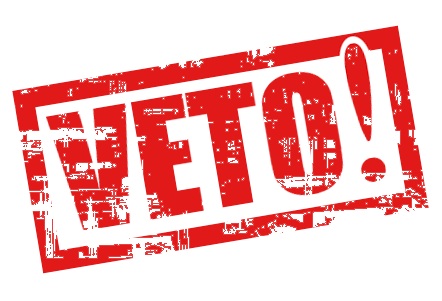Overriding the President

Photo Courtesy of Washington Watch
Congress recently overturned a Presidential Veto recently.
October 12, 2016
On Wednesday September 28th, Congress overwhelmingly voted to override a veto by President Obama for the first time during his time in office. Congress supported passing into law a bill that would allow the families of victims from the September 11, 2001 terrorist attacks to sue Saudi Arabia for any role in the plot.
Historically, presidential vetoes are rare, which makes this event ever more momentous. In order for Congress to override a veto instated by the president, the House of Representatives and Senate to obtain a two-thirds vote. In the House of Representatives that would mean that 290 of 435 members must approve it. For the Senate, 67 of the 100 members must also vote in favor of it. Both houses must pass it in order for it to officially override the Executive branch’s veto. Presidential vetoes have only be overridden less than ten percent of the time, which displays the difficulty (The Senate). This bill however, was passed easily through the Legislative Branch because Republicans and Democrats aligned with similar views on this matter. The bill was able to obtain a ninety-seven to one vote in the Senate and the three hundred and forty-eight to seventy-seven vote in the House of Representatives.
This law officially allows victims’ families of the September 11th terror attacks to alter their current lawsuits or file new ones that directly sue Saudi Arabia and demand documents and other evidence regarding their involvement. The legislation amends a 1976 law that granted foreign countries the immunity from American citizen’s lawsuits. Now nations could potentially be sued in the federal court if they are found to have played any role in terrorist attacks that affected Americans on United States territory.
Due to the rarity of any override and the topic of this bill, many people are discussing all that has recently occurred in our government. Some see this as a great reminder of the checks and balance system installed in our constitution. Each branch has the ability to overturn the others’ actions when justifiable. Ravi Patel (12) claimed ” as an AP Government student I appreciate this. You know it is possible, however never believe it actually occurs because of how rare it is. I see it as Government is actually achieving something for once, instead of legislation constantly fading out because the Executive and Legislative Branch cannot agree. I also see this as very beneficial for those effected by 9/11. They will be able to receive some justice.”




































